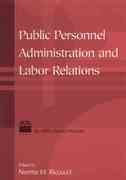Question
Assume that you have a professor and student playing a game we'll call the Final Exam game. Assume further that the game is played over
Assume that you have a professor and student playing a game we'll call "the Final Exam game". Assume further that the game is played over just one period (e.g. final 4 weeks of the semester) and that this is a game with complete information. Our student must decide between two different strategies. The first strategy involves paying attention, taking good notes and studying hard for the upcoming exam. There's obviously a higher cost with this strategy, but the student is well prepared for even a difficult final exam and gets more deferred gratification. We'll call that strategy work hard. The second strategy is to not pay attention and play on their phone during class (e.g. texting friends, posting selfies on Chap n Snap - or whatever it's called, etc.). This strategy has a lower time and effort cost, and although this strategy obviously opens the student up to imminent disaster if the final exam is difficult, it also provides more immediate fun. We'll call this second strategy goof off. As the end of the period draws near, the professor must also choose between two strategies. The first strategy is for him to give a hard exam. We can assume that writing a harder exam takes significant effort, because the professor must spend a lot of time coming up with difficult questions. The professor also gets a lot of benefit from writing a hard exam, however, because a harder exam gives the professor more street cred (i.e. as a professor who takes learning seriously) amongst future students. The second strategy involves writing an easy exam, which takes almost no effort at all and provides a small amount of benefit to the professor. Given the strategies outlined above, we have four possible outcomes. Outcome 1: professor chooses easy exam and student chooses work hard, giving the professor 5 units of net benefit and the student 4 units of net benefit Outcome 2: professor chooses easy exam and student chooses goof off, giving the professor 3 units of net benefit and the student 5 units of net benefit Outcome 3: professor chooses hard exam and student chooses work hard, giving the professor 4 units of net benefit and the student 3 units of net benefit Outcome 4: professor chooses hard exam and student chooses goof off, giving the professor 2 units of net benefit and the student 2 units of net benefit
Utilizing the information above, what is the outcome if this is played as a one-period sequential game with the Professor moving first?
| a. | Professor will choose easy exam, and student will choose work hard (Outcome #1) | |
| b. | Professor will choose easy exam, and student will choose goof off (Outcome #2) | |
| c. | Professor will choose hard exam, and student will choose work hard (Outcome #3) | |
| d. | Professor will choose hard exam, and student will choose goof off (Outcome #4) |
Step by Step Solution
There are 3 Steps involved in it
Step: 1

Get Instant Access to Expert-Tailored Solutions
See step-by-step solutions with expert insights and AI powered tools for academic success
Step: 2

Step: 3

Ace Your Homework with AI
Get the answers you need in no time with our AI-driven, step-by-step assistance
Get Started


